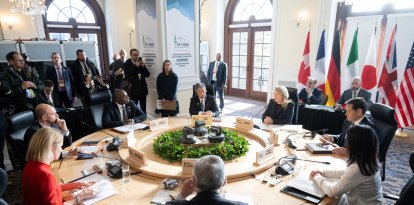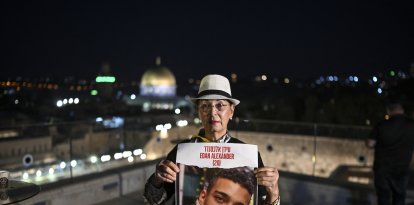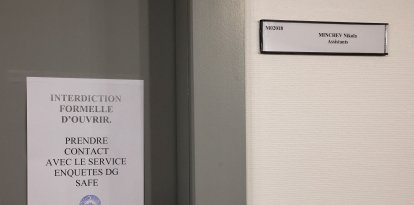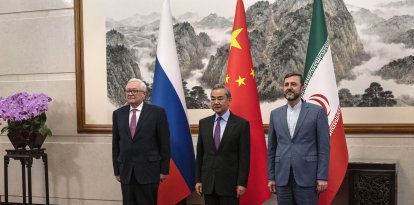15-minute cities, an urban planning model that violates freedom of movement
Jordan Peterson: "The idea that idiotic tyrannical bureaucrats can decide by fiat where you're 'allowed' to drive is perhaps the worst imaginable perversion of that idea."
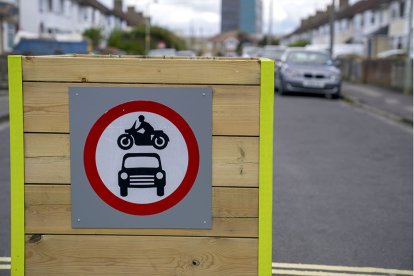
(PA / Cordon Press)
Thousands of people took to the streets of Oxford (England) to protest against the implementation of the so-called light traffic neighborhoods (LTN). This new urban model consists of imposing mobility restrictions on the residents of the locality who wish to enter certain areas of the city by car.
LTNs are an urban planning scheme that mimic the principles of the so-called '15-minute cities.' In theory, these schemes are intended to reduce traffic levels in localities and are sold on the idea of being convenient for residents, as all basic needs and services such as education, health, supermarkets, cultural venues and work - are located in an area less than a quarter of an hour's walk or bike ride away.
In addition to this, there is an apparent environmental justification. Since, while citizens have all their basic services (less than 15 minutes walking distance from their homes), carbon dioxide emissions are also reduced, since it is not necessary to use 'polluting' vehicles to get around.
Oxfordshire, a 15-minute town
The Light Traffic Neighborhoods (LTN) standard was approved by Oxfordshire County Council in November 2022 and the aim is for it to be implemented later this year.
In the case of this English locality, these neighborhoods include "traffic filters" to prohibit the free movement of citizens. In other words, blockades will be imposed on some streets to prevent non-residents from passing through them. According to the official text published in the Oxfordshire Country Council:
The LTN will limit traffic on six streets in Oxfordshire. Only authorized automobiles may enter and travel during the designated hours (7 a.m. - 7 p.m.) in the restricted zones. Automatic license plate recognition (ANPR) cameras on city streets will read the license plates of non-compliant vehicles. A citizen who violates the rule will be fined $83.6 (70 pounds sterling).
An attack on freedom of movement
Many city residents do not agree with the implementation of this measure and decided to protest to show their discontent. The demonstration was organized through social networks under the hashtag 'Our community, our choice'.
One citizen who participated in the protest told the Oxford Student newspaper that they are "incredibly concerned" because the rule infringes on their "rights, freedom of movement and everything that comes from freedom of movement."
Another protester added that people are being "locked up in areas of their own cities." He further noted that the "wonderful idea" with which they promote the 15-minute cities is a hoax and that the reality is that they are "being tracked within their own city."
Also present at the protest was actor and political activist Laurence Fox, who showed his support for the protesters and commented to the BBC:
Not all city officials agree with the measure. Oxfordshire council member Liam Walker said these plans were "hitting residents' pockets and affecting businesses. Oxford is slowly being shut down under this anti-motorist coalition."
What are 15-minute cities?
In 2016, Colombian Carlos Moreno, a professor at the University of Paris, created the concept of the "15-minute city." This urban planning model is based on "hyperproximity" and looks to reduce commuting times for citizens and promote a pace of life in which people can travel within 15 minutes to parks, schools, health centers, leisure and work without the need to use a car. That is, walking or cycling, in turn reducing environmental pollution.
According to Moreno:
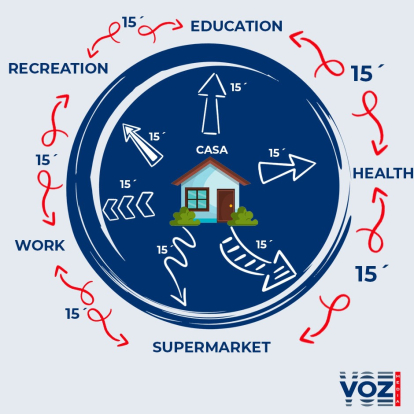
The 15-minute cities.
Initially, this city prototype became known and later "popularized" by the mayor of Paris (France), Anne Hidalgo, who decided to implement it in the city, becoming one of the first major cities to do so. This was followed by other metropolises such as Buenos Aires (Argentina), Ottawa (Canada), Milan (Italy), Melbourne (Australia) among others, some of them extending the concept to 20 minutes.
Moreno stated that "the mayors" of the cities were quickly mobilizing "to implement urban development policies that promote proximity." And he warned that the measures in his plan, which were "aimed at a more livable, inclusive, equitable and resilient city" involved "a paradigm shift in the way the city is managed."
Criticism:"urban incarceration" and the end of "personal freedoms"
Many criticisms have arisen around these 15-minute cities, including among them the "potential to fracture cities": to increase economic inequalities between areas where the richest and poorest people reside.
Another of the harshest criticisms of the project is that the government can "decide by decree where driving is allowed" or where citizens are allowed to move around. Canadian clinical psychologist Jordan Peterson posted a tweet where he noted:
The violation of citizens' personal freedom and the attack on their rights is another factor by which the project is being judged. In early February, British Member of Parliament, Nick Fletcher, called the plan an "international socialist concept" and stated that "it will cost us our personal freedom."
"Urban incarceration." This is what journalist James Melville called them, sharing a video filmed on the streets of China. He noted that "every neighborhood area" in that locality "is separated by a barbed wire fence." And "anyone who wants to leave their area, needs a QR code/COVID passport and a facial recognition scan."
"A dystopian hell on earth," the journalist concluded.
Despite all the criticism, Moreno justifies his approach that "the city of 15 minutes is anticipating the future," and advocates that they seek to provide "better livability, more economic and social balance, mixed social categories, cities for better living." however, many people, such as the residents of Oxfordshire along with many other critics from diverse backgrounds, disagree with his ideas and his new model of society where "proximity" is an essential basis for the development of human beings.
RECOMMENDATION
